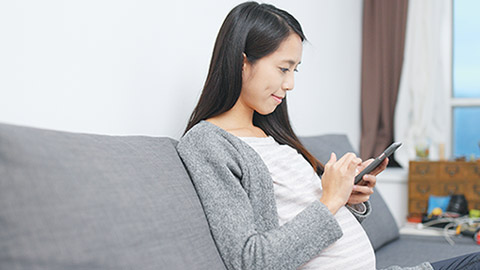
Adapting to life on lockdown due to the COVID-19 pandemic has raised many concerns, especially from expectant mothers and mothers of young children alike. After all, their family is their first priority. So how do you protect your family from the virus? How do you make sure your household is safe from germs? Is it still safe to deliver your newborn child in the hospital?
We’ve put together a list of the most pressing questions from mothers, as well as answers from experts to help you navigate through this time.
I’m pregnant. Am I at a higher risk of getting COVID-19?
There is not enough substantial information regarding pregnant women being at higher risk for COVID-19. However, due to changes in the bodies and immune systems of pregnant women, they have an increased risk of severe illness when infected with viral respiratory infections from the same family as COVID-191.
It is always safer to practice physical distancing especially from people who are sick, as well as observing good hygiene. Remember to clean your hands often with soap and water, or an alcohol-based hand sanitizer!
If I have symptoms of COVID-19, is it possible to transfer it to my unborn child?
It is unlikely for mother-to-child transmission of COVID-19 to occur in the womb. In limited studies, the virus has not been detected in amniotic fluid, breastmilk, or other samples1,2. However, once your little one is born, he or she is susceptible to person-to-person spread, whether or not you are infected with COVID-19.
I’m afraid to give birth in hospitals. Where else can I give birth?
According to the Department of Health, it is still safer to give birth in health facilities than at home. You can give birth in health facilities and clinics that are licensed by the DOH and PhilHealth such as infirmaries or private clinics that have midwives and doctors who can give you the proper medical attention3.
Should I continue getting prenatal checkups? I’m worried about going to the hospital at this time.
It’s still important to have prenatal visits even at this time to ensure maternal and fetal health. However, many OB-GYNs are increasing the interval between visits or even encouraging telephone consultation. Ask your OB-GYN if you should buy a blood pressure cuff so you can monitor your baby’s movements. We encourage you to talk to your doctors regarding prenatal care and continue to go for check-ups as long as your OB-GYN feels it’s appropriate4.
Is it safe to spend time at the hospital after delivery? Does it increase my risk of getting infected?
Hospital staff are trying to minimize the number of people coming in and out of the hospital. There are guidelines to make sure that suspected and confirmed COVID-19 patients should be isolated from other patients. All healthcare workers make sure that your risk for infection is low.
There are many precautions taken to minimize risk of infection. Talk to your doctor to see if it’s possible to go home from the hospital earlier than usual, as long as you feel well and there were no complications during childbirth4.
Should I continue with my child’s vaccination during this time?
Yes. The WHO recently released guidelines to help maintain essential services such as immunization. According to the WHO Director-General Tedros Adhanom Ghebreyesus, “The best defense against any outbreak is a strong health system”5.
Is it ok for relatives to meet my newborn at home?
Because newborns are still developing their immune system and have a hard time fighting illnesses, it’s important to practice social distancing when your little one comes home from the hospital6.
Here are some things to keep in mind when protecting your newborn:
- Keep him or her away from other people as much as possible. Avoid all visitors and family gatherings.
- If you need to go for a doctor’s visit, remember to wear a mask and stay at least six feet away from others.
- If anyone at home is sick, take all precautions and keep your newborn away from them.
- Make sure to disinfect all surfaces and wash your hands before holding your newborn.
For more information about COVID-19, visit www.covid-19facts.com.
Resources:
1 Center for Disease Control and Prevention. 3 April 2020. Pregnancy and Breastfeeding
https://www.cdc.gov/coronavirus/2019-ncov/need-extra-precautions/pregna…
2 Philippine Obstetrical and Gynecological Society. 8 March 2020. PIDSOG Official Statement on the COVID-19 Infection
https://www.pogsinc.org/index.php/component/k2/item/551-pidsog-official…
3 Department of Health Official Facebook Page. 1 April 2020. COVID-19 FAQs On Breastfeeding and Pregnancy
https://www.facebook.com/OfficialDOHgov/photos/pcb.3192230064121557/319…
4 Harvard Health Publishing, Harvard Medical School. 2 April 2020. Pregnant and Worried About the New Coronavirus?
https://www.health.harvard.edu/blog/pregnant-and-worried-about-the-new-…
5 World Health Organization. 30 March 2020. WHO Releases Guidelines To Help Countries Maintain Essential Health Services During the COVID-19 Pandemic
https://www.who.int/news-room/detail/30-03-2020-who-releases-guidelines…;
https://www.cdc.gov/coronavirus/2019-ncov/daily-life-coping/talking-wit…
6 KidsHealth. 01 April 2020. Coronavirus (COVID-19): Pregnancy FAQs. https://kidshealth.org/en/parents/coronavirus-pregnancy.html
